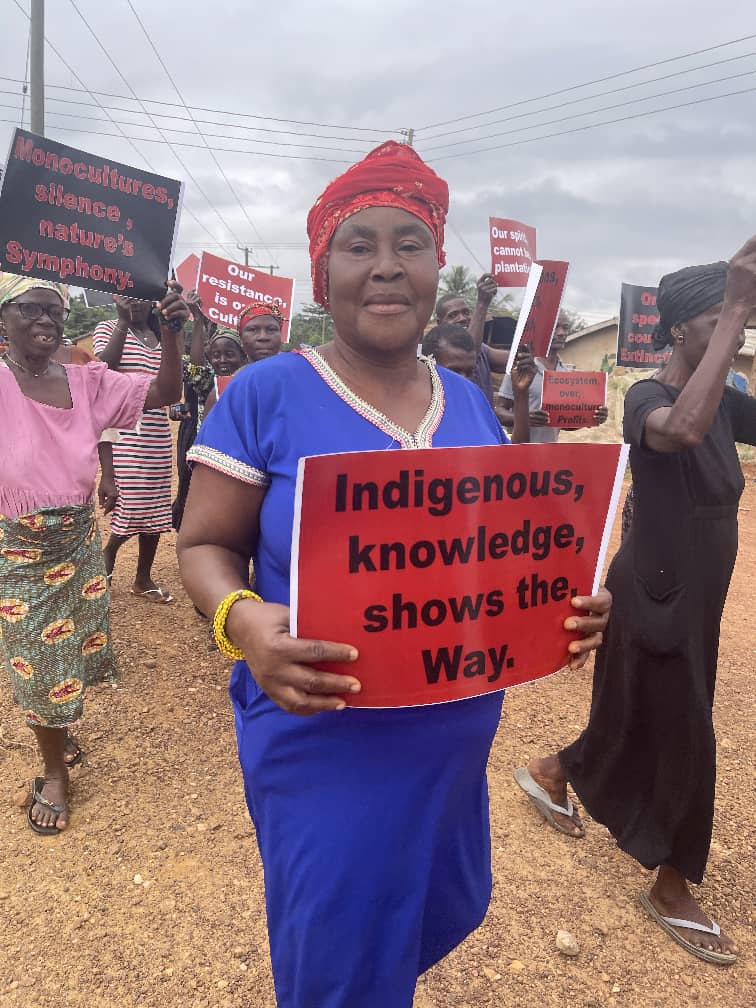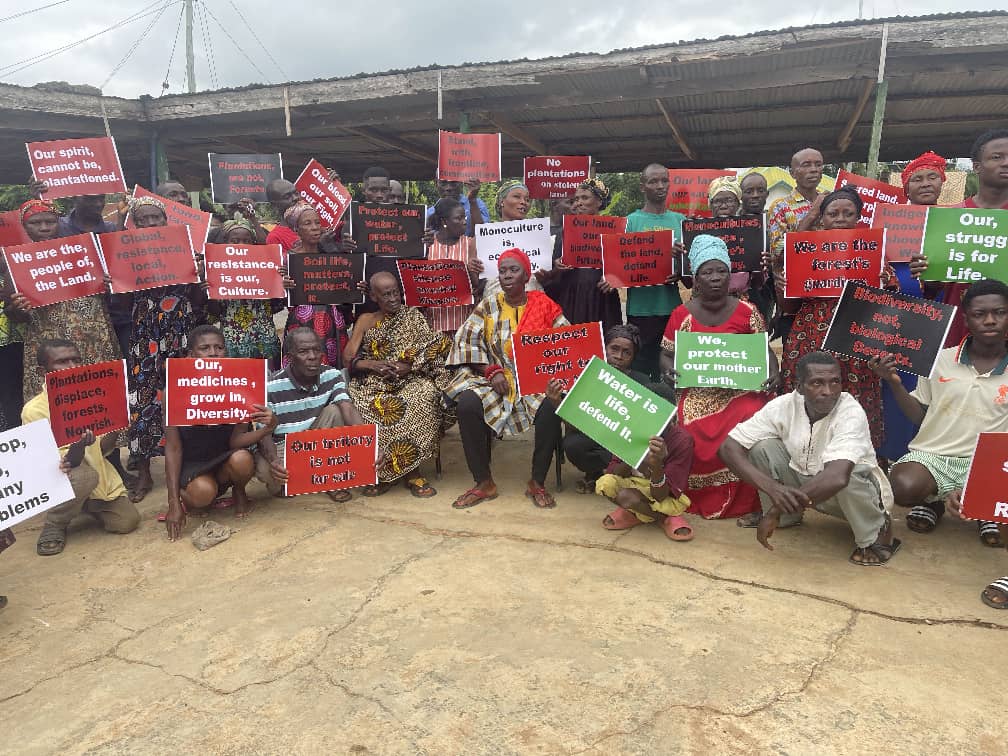Building on the theme for this year's celebration, "strengthening community women to stand for their rights", the Director of the NGO, Mr. Wisdom Koffi organised a dialogue that brought together members of the community, mostly women, to a call for action against monoculture practices.
In his address, Mr. Koffi stressed the need for the people to prioritise biodiversity over monoculture farming in order to safeguard the environment and preserve their forests.
Mr. Koffi also explained that cultivating diverse crops on a farm is more beneficial than dedicating vast areas of land to a single crop over long periods, as monoculture does more harm than good to soil fertility and overall land health.
He further urged the people of Okumanin Aboabo to also take into consideration the importance of maintaining their forests and resisting unlawful buyers who are seeking to exploit their lands under the disguise of "creating a forest".
As part of this public sensitization, he clarified the difference between a Plantation and a natural forest.
He also emphasised the need to protect their water bodies in communities like Okumanin Aboabo while highlighting the need for them to prioritise human health and nature over profit.
Mr. Koffi also went ahead to call on the members of the community to stand in solidarity with other communities affected by harmful monoculture practices and provide their support by championing the cause of biodiversity.

{{ $story->secondFootNote }}
Adding his voice, the Chief of Okumanin Aboabo, Nana Adu-Gyamfi, encouraged YVE to introduce practical initiatives such as supplying seedlings of diverse crops and intensifying community education on the dangers of monoculture, especially among the youth.
He emphasised that frequent sensitization, together with these practical initiatives, would increase awareness and strengthen local efforts to protect the land from monoculture practices.

{{$story->thirdFootNote }}
The dialogue concluded with a peace march by the community, symbolizing their readiness to take decisive action to end monoculture and embrace sustainable farming practices.


Comments